REDUCING GUN VIOLENCE
I believe that we can respect the Second Amendment rights of responsible gun owners and still reduce gun violence and keep our communities safe.
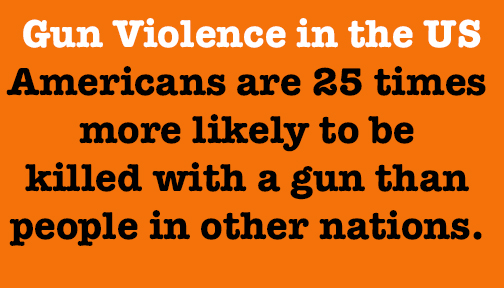
Americans are 25 times more likely to be killed with a gun than people in other nations. According to the CDC in 2015, each year more than 130,000 people are shot, and over 33,000 die from gun injuries in the United States. Those figures are undoubtedly higher now. Giffords claims 96 Americans are killed with guns every day.
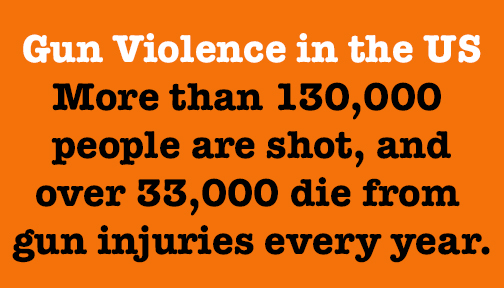
There are commonsense, middle ground solutions to this escalating problem of gun violence, and we all — Democrats, Republicans, Libertarians, and Undeclareds — need to work together to find them.
Many people think our current gun laws are stronger than they actually are. Unfortunately, loopholes in our laws allow up to 40% of gun sales transfers to still go unchecked, according to Mayors Against Illegal Guns (1994) and The Trace (2015).
As was pointed out to me, this 40% figure is outdated, and probably not accurate. I’m not perfect, but I’m not alone. And, I’m willing to admit to my mistakes! This is why legislators have hearings and do extensive research before voting on a bill.
Whether or not the 40% is correct, PR Newswire, in 2013, reported that more than 243,000 guns annually may be illegally transferred via unregulated private sellers on a single website, with no background check.
A more recent study, published in the Annals of Internal Medicine in 2017 reports that 22% of current U.S. gun owners who acquired a firearm within the past 2 years admitted to doing so without a background check.
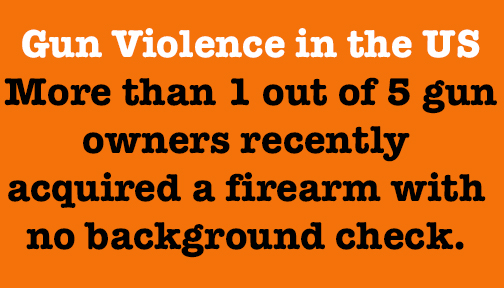
In reality, we don’t really know the real numbers. Daniel Webster, a gun violence researcher at Johns Hopkins University claims that over the years, Congress has pulled funding from agencies like the Centers for Disease Control and Prevention to deter in-depth reviews of gun violence.
Consider these facts, provided by Americans for Responsible Solutions:
- Prohibited purchasers, including convicted felons and people with dangerous mental illness, can buy a gun online or at a gun show without a background check, no questions asked.
- Many dangerous people, including people convicted of stalking or domestic abuse against a dating partner, can legally purchase and own guns.
- Individuals suffering from dangerous mental illness, but not committed to an institution, can legally purchase and own guns.
- Known and suspected terrorists can legally purchase and own guns.
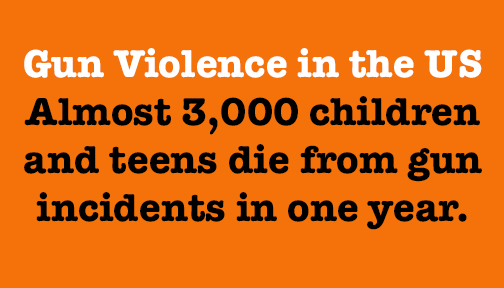
With freedom comes responsibility, taking commonsense measures to keep guns out of the wrong hands, and prevent felons, domestic abusers, and the dangerously mentally ill from creating senseless tragedies. This is not about taking guns away from law-abiding gun owners. However, we need to encourage firearm owners to use best practices to keep guns safe and prevent access to children, to reduce the number of accidental shootings in the home. In 2014, 10 US kids were hospitalized every day for gunshot injuries. In 2015, almost 3,000 children and teens died from gun violence.
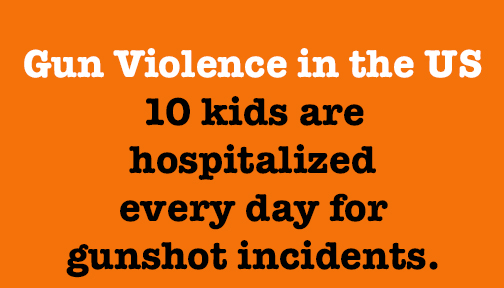
We can’t prevent every incident of gun violence, but, as an elected official, I need to do what I can to help save lives and make our communities a place in which our children and grandchildren can safely live. Too many innocent lives are being taken. Saving lives is worth it.
If elected, it is not my intention to introduce gun legislation, but I will undoubtedly be asked to vote on certain firearm issues. Salem voters have already expressed great concern about this topic. I promise them that I will carefully and thoughtfully examine both the pros — and cons — of any such bills before I vote.
I recognize that in 2016, New Hampshire had the 13th lowest number of gun deaths per capita among the states. However, based on data from the Bureau of Alcohol, Tobacco, Firearms, and Explosives, in 2016, New Hampshire had the 21st highest rate of crime gun exports, exporting nearly nine times as many crime guns as it imported.
As new information becomes available, my stance could change, but if I were voting now, and if a bill is worded properly, and not rolled in with other unrelated bills, I would likely vote in favor of passing bills that would:
Ban Bump Stocks and High-Capacity Magazines
Bump stocks turn semi-automatic weapons into rapid-fire automatic weapons. They reduce accuracy, so are not desirable except for when shooting into a crowd when accuracy is not necessary. I don’t see any advantage for them, except to a terrorist. This ban should be made by the federal government, but, until they take such action, the States must act. Between 56% and 77% of the American public agree with this.
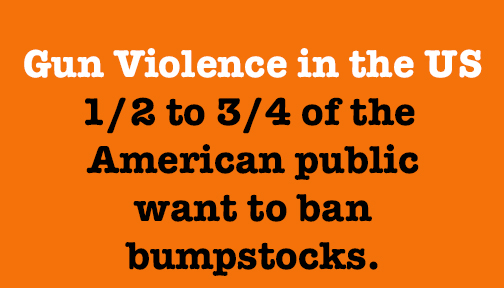
Require a 48-Hour or 72-Hour Waiting Period
In addition to allowing time for a comprehensive background check, a 48-hour or 72-hour waiting period also saves lives. A majority of the gun-related deaths are due to suicide. Studies show that a majority of those who commit suicide take action within five hours of the decision to take their life. Making guns less accessible may prevent an attempt, or drive the person to attempt it via another method, which is often less successful. Homicides are also often planned with little or no pre-planning.
The majority of gun deaths are self-inflicted. The easy availability of firearms to those in distress makes suicide attempts far more likely to result in death. Most people who attempt suicide without a gun survive in both the short and long term— 90% of survivors do not die by suicide. But those who reach for a gun rarely have a second chance.
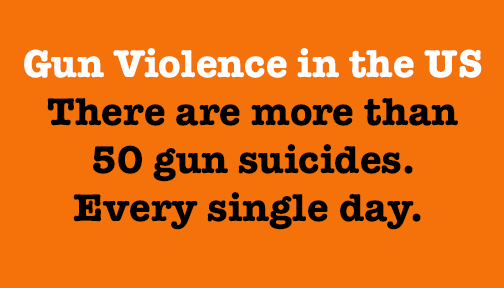
In 2015, the CDC reported that there were more than 50 gun suicides in the US every day. Today’s edition of the Boston Globe talked about the increase in suicide rates. Massachusetts had a huge increase, up 35% from 1999-2016, yet it is considered low. New Hampshire has double the rate of Massachusetts, up 48.3%, making it the third state with highest overall percentage change. Health officials have attributed Massachusetts’ low suicide rate to several factors, including a low rate of gun ownership; “the literature is getting pretty strong that states with easier access to guns have higher suicide rates.”

Waiting periods provide a brief but crucial cooling off period to guard against impulsive gun purchases. Let’s give folks time to change their minds before they can purchase a gun with the intention of committing suicide or committing a gun homicide/femicide. 78-83% of voters agree, according to various sources.
Require Universal Background Checks
Currently, background checks are only required under federal law for sales conducted by licensed dealers. This lets criminals and other prohibited purchasers acquire guns — often from strangers met online or at gun shows — without a background check, no questions asked. (Everytown for Gun Safety)
Some who are legally allowed to own and carry firearms have histories of violence and recklessness. We should have a law that closes the loopholes and requires thorough background checks, making it harder for dangerous people to get guns. This should appropriately balance the rights of individuals to responsibly own and use firearms, and the right to live in a community safe from violence. Background checks should apply to all transfer of firearms, including private sales and online sales.
Americans for Responsible Solutions report that in states which require criminal background checkson all handgun sales, 46 percent fewer women are fatally shot by their partners, 48 percent fewer police are killed with handguns and 64 percent fewer guns traced to crime are trafficked out of state. Between 2004 and 2014, more than 2,000 terror suspects legally purchased guns. We can, and must, do better.

Since the tragic incident at Sandy Hook, lawmakers in 41 states have passed 125 commonsense gun laws. Those states that have enacted the strongest gun laws have reduced gun violence by 40 percent. Background checks have stopped the sale of over 2.4 million guns to felons, domestic abusers, and the dangerously mentally ill.
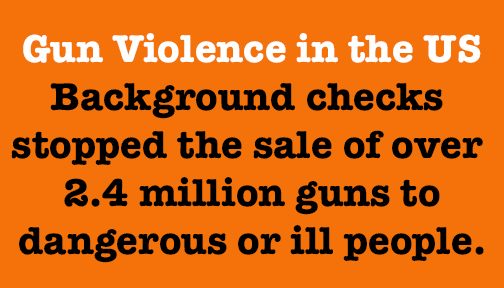
Most reasonable adults prefer that those who commit domestic violence, hate crimes, and those with a demonstrated history of harming themselves, do not have access to weapons. According to the research team of Greenberg, Quinlan and Rosner, several years ago, 85% of those surveyed supported background checksfor all gun sales; 82% supported closing the terror gap that lets known and suspected terrorists legally buy guns, and 76% supported prohibiting stalkers and domestic abusers from accessing guns. Giffords now reports that 97% of Americans support requiring a background check for all gun sales, including 93% of gun owners, and 94% of Republicans.
NH law requires handgun dealers (but not dealers in rifles and shotguns) to obtain a state license. Licensed handgun dealers perform their own background checks for handgun sales (but not sales of rifles or shotguns). NH law does not require a background check prior to the sale of any firearm from an unlicensed individual. NH law does not require that mental health information be reported for use in firearm purchaser background checks. NH law does not require firearm owners or purchasers to obtain a license, insurance or register their firearms.
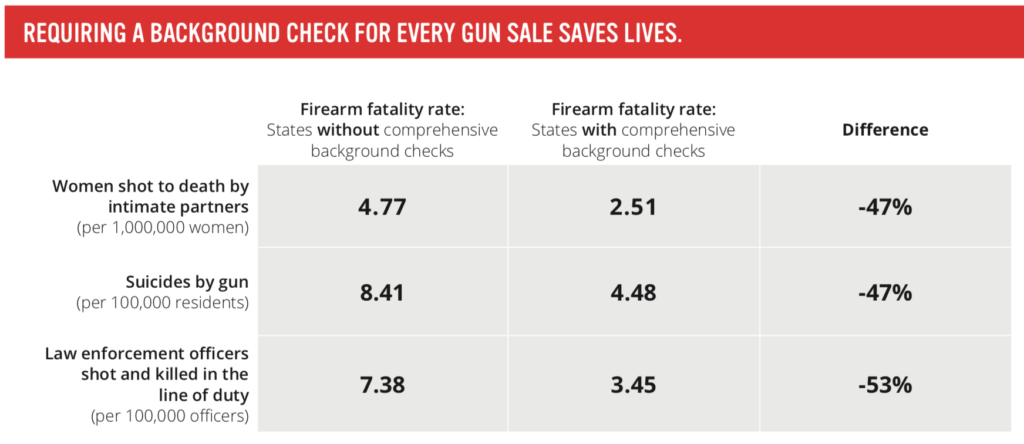
Chart from Everytown for Gun Safety
Enact Extreme Risk Protection Orders, AKA “Red Flag Laws”
I would likely support a Red Flag law, whereby the court can issue a temporary restriction at the request of family members, guardians, and law enforcement officials in cases where Red Flags — warning signs of mental illness, violence and substance abuse — are present. This will give families and law enforcement officials the tools they need to keep people in crisis from accessing a gun.
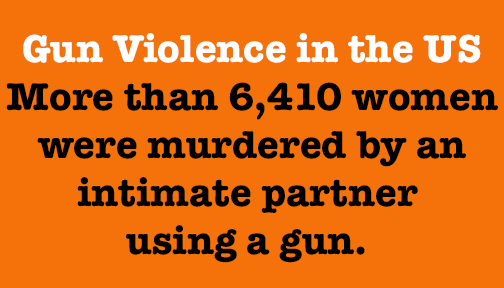
The American Journal of Medicine reports that that the firearm homicide rate for women in the US is nearly 16 times higher than that in other high-income countries. They also share that the presence of a gun in a domestic violence situation makes it five times more likely the woman will die. From 2001 to 2012, Giffords reports that more than 6,410 women were murdered in the US by an intimate partner using a gun. (This is more than the number of US troops killed in action during the wars in Iraq and Afghanistan combined.)A very detailed study published in the American Journal of Public Health back in 2003 established that there are identifiable risk factors for intimate partner femicides (female homicides), and the presence of a gun in a domestic violence situation makes it five times more likely the woman will die. Everytown for Gun Safety shows that 47% fewer women are killed with a gun by an intimate partner in states that require background checks for all handgun sales.
In NH, individuals subject to a domestic violence protective order are required to relinquish all firearms and ammunition for the duration of the order.
Ban sales of military-style semi-automatic weapons
The weapon of choice for most mass shootings are AR-15s, or other “military-style” semi-automatic weapons. The military features that distinguish assault weapons from standard sporting firearms enable shooters to spray large amounts of ammunition quickly while retaining control of the gun. These weapons are intended to kill, but are not used by hunters, because of the amount of damage they do to the meat. Military-grade weapons have no place in civilian life; they are unnecessary for self-defense. The sole reason for having an AR-15 or similar gun is to kill humans. A 2014 study by Mark Gius found that “both state and federal assault weapons bans have statistically significant and negative effects on mass shooting fatalities.”

NH does not prohibit the transfer or possession of assault weapons, 50 caliber rifles or large capacity ammunition magazines. Some states do. California, Connecticut, Hawaii, New Jersey, New York grandfather pre-ban weapons. As a compromise, I could support this, but would want to further study the registration mechanism for grandfathered weapons, and limits on their transferability, use, and storage in these states.
We sometimes wonder why the United States has more mass shootings using these weapons, forgetting that they were banned until 2004. Banning assault weapons is supported by 53-68% of Americans, depending on the source.
Allow local government to establish “Gun-free” zones
Local government should have the right to decide if they want to establish “gun-free” zones as a means of reducing gun violence in certain public places that are more likely to be places where the public could be targeted for harm. These locations include schools, public parks and bars.
Since 2003, New Hampshire law has pre-empted local governments, allowing towns to have no say in these laws. At present, all adults, including school visitors, are allowed to carry firearms on school property. (Students are not). Towns should have the ability to make these decisions. I would not support a bill calling for teachers to be armed.

Studies have found that laws that strip regulations for carrying guns in public places are associated with a 12% to 18% increase in violent crime over the 10 years following their adoption.
Require Licensing for Concealed-Carry
In 2016, NH became one of just 12 states who do not require a permit to carry a concealed, loaded, firearm. I believe NH made a mistake when we repealed that law. We owe it to our police departments to be able to give them the ability to know if someone they have stopped is likely in possession of a concealed weapon.
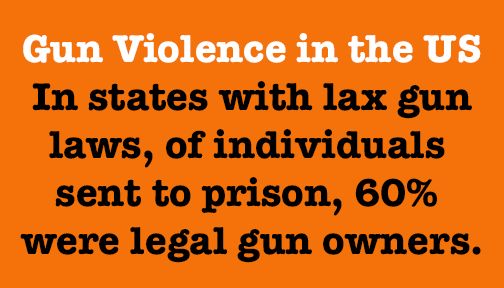
John Hopkins documents that concealed carry permit holders have passed criminal background checks and, as a group, commit crimes at a relatively low rate. But, in states with the most lax standards for legal gun ownership, 60% of individuals incarcerated for committing crimes with guns were legal gun owners when they committed their crimes.
The number of people shot in mass shootings in the U.S. has increased dramatically during the past decade – a period that coincides with the removal of restrictions on public gun carrying and a push to make gun carrying in public more acceptable.
Giffords argues that claims that permissive gun laws reduce gun violent incidents are untrue, and that no credible evidence exists to show that permissive concealed carry laws reduce crime. In fact, successful and warranted civilian defensive gun use is relatively rare. A 32-page study from John Hopkins’ Bloomberg school of Public Health supported that claim, showing that:
- Right-to-carry firearm laws do not reduce mass shootings or casualties from such shootings.
- Effective neutralization of active shooters requires skills and experience that most civilians lack
- Legally armed citizens very rarely successfully intervene to prevent or interrupt mass shootings
- Victim gun use in response to criminal acts do not affect victim’s risk to injury
- The most recent rigorous research studies find right-to-carry laws linked to increased violence.
In a 2015 poll by Every Town for Gun Safety, 87% of American voters said they “opposed allowing citizens to carry concealed handguns in public places if they don’t have a permit,” while only 11% support it. More recent numbers show 90% oppose, and 10% support it.
Very few people in New Hampshire were denied permits to carry concealed permits, yet this was a prime argument to repeal the previous law. I could support a fair grievance procedure for those who are denied, but otherwise, I cannot find a valid reason why any law-abiding citizen would oppose concealed carry permits.
I invite respectful discussion on gun violence, as well as any other topic.
As part of the follow-up discussion to this article, it was pointed out that my claim that 40% of gun sales have no background check.
This article was edited to correct that error.
Additional statistics from USA Today and Quarz Media:
The US tops the list of countries with the most guns, owning about half the world’s guns while making up only 5% of the world population.
In relative terms, the US has the highest number of guns per capita. There were an estimated 89 to 100 guns for every 100 Americans in 2013–around one firearm per person, but only a quarter of Americans own a gun. The average American gun owner owned three guns in 2015. More than a half of them own just one or two, whereas 14% of them–7.7 million or 3% of the US population–own anywhere between eight to 140 guns.
Despite steep declines in violent crimes, an estimated 70 million firearms were added to American arsenals the past two decades, according to a new landmark study on gun ownership.
Overall, Americans own an estimated 265 million guns – more than one gun for every American adult, according to the study by researchers at Harvard and Northeastern universities. Half of those guns – 133 million – were in the hands of just 3% of American adults, so-called “super owners” who possessed an average of 17 guns each, it showed.
- An estimated 55 million Americans own guns.
- The percentage of the U.S. population who own guns decreased slightly from 25% in 1994 to 22% last year.
- Between 300,000 and 600,000 guns are stolen each year.
- Gun owners tend to be white, male, conservative, and live in rural areas.
- 25% of gun owners in America are white or multi-racial, compared with 16% of Hispanics and 14% of African Americans.
- There are an estimated 111 million handguns nationwide, a 71% increase from the 65 million handguns in 1994.
Suggested reading:
- America’s Complex Relatioship with Guns: http://www.pewsocialtrends.org/2017/06/22/americas-complex-relationship-with-guns/
